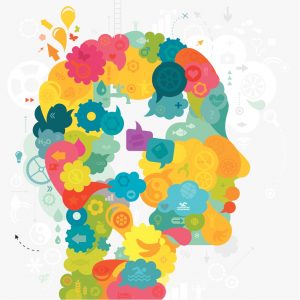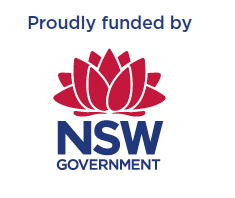This mental health recovery series seeked to meet the current moment with its continued uncertainty, exhaustion and other ongoing reverberations of the COVID19 pandemic. The webinar content was designed in response to issues raised by staff in a variety of organisations to provide evidence-based strategies and tools that support ongoing wellbeing and resilience.
Note that the following sessions were for members of Community Colleges Australia. Please contact us if your organisation is interested in membership.

Session 1: PANDEMIC RECOVERY - Managing stress and burnout
Ongoing stress and anxiety are common experiences impacting many of us right now but the human body was not built for chronic stress. Chronic stress is implicated in burnout and many other poor physical and mental health outcomes. This workshop is based on polyvagal theory with activities that allow participants to learn to navigate and change their own personal stress responses, ‘hacking’ their nervous systems for increased vitality and better, more intentional stress management.
Content
- The physiology of Stress
- Good versus bad stress
- Anxiety, stress or burnout?
- Nervous system responses and remedies
Outcomes
Participants will:
- Understand how stress impacts wellbeing
- Learn strategies and tools they can individually tailor to increase their wellbeing for better stress management
Audience
This session was designed to be useful and relevant to all ACE staff.
Session 2: POST PANDEMIC RESILIENCE
What does resilience mean in a post-pandemic world? After two and a half years of pandemic our collective capacity is low and we are still experiencing ongoing uncertainty. This one hour webinar gives you tools and strategies for building resilience and increasing coping.
Content:
What is resilience?
- Recognising roadblocks to resilience and how to overcome
- them
- Strategies to build resilience
Outcomes
Participants will:
- Reflect on their personal resilience
- Learn tools and strategies to build resilience and coping skills
Audience
This session was designed to be useful and relevant to all ACE staff.
Session 3: PSYCHOLOGICAL SAFETY - Fostering a psychologically safe workplace
Against the backdrop of pandemic recovery, keeping our teams psychologically healthy and functioning is key. Psychologically safe workplaces allow team members to have difficult conversations, admit mistakes and to learn and grow creating stronger, more resilient and more creative teams.
Content
- What is psychological safety and why is it important?
- Can you bring your whole self to work?
- What gets in the way
- How we can all take action to create a psychologically safe
- workplace
Outcomes
Participants will:
- Be able to understand the concept of psychological safety and how it plays out in the workplace.
- Know the barriers to psychological safety
- Develop strategies for increasing psychological safety
Audience
This session was designed to be useful and relevant to all ACE staff.
Session 4: MINDFULNESS FOR PEOPLE WHO HATE MEDITATING
In the context of living through challenging moments in history we all need tools that help and support us. Mindfulness is not just a buzz word but an evidence-based intervention that supports wellbeing, stress management, emotional regulation and interpersonal relationships. This webinar teaches trauma informed mindfulness techniques that are easy, fun and useful and is perfect for people who hate the idea of meditating and have not enjoyed mindfulness practice in the past.
Content
- What is mindfulness?
- Mindfulness versus meditation
- What the science says
- Different mindfulness techniques
Outcomes
Participants will
- Learn the science and benefits of mindfulness
- Learn which mindfulness tools to apply in different situations
- Create their own mindfulness plan
Audience
This session was designed to be useful and relevant to all ACE staff.

About Big Life
Liana Busoli (M Couns, GradCert, BA) has a wealth of experience working with and in NFP organisations. She is a psychotherapist and trainer with a particular interest in mental health, trauma, vicarious trauma, and staff burnout. Liana gives people and organisations the support, tools, and education they need to improve their mental health and wellbeing and live bigger, richer and fuller lives.




